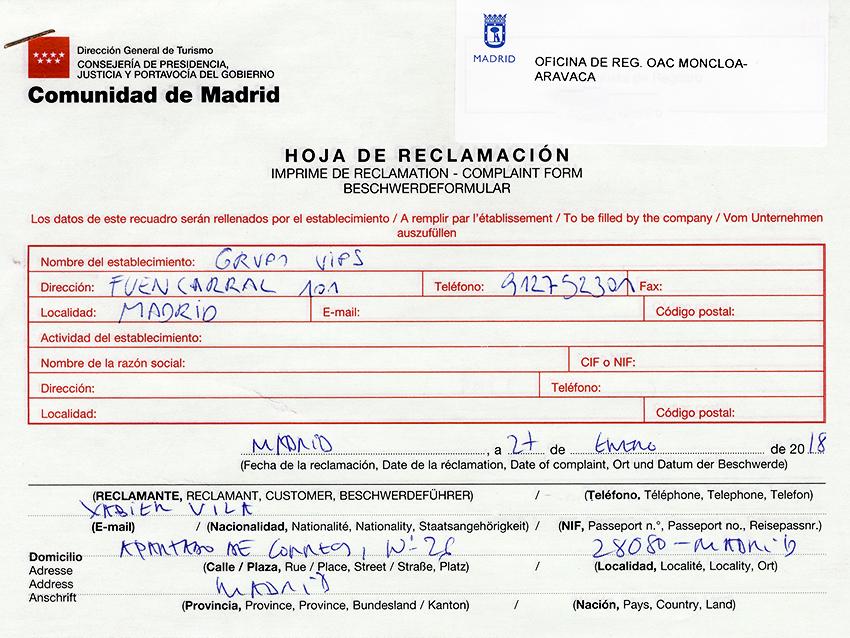The reader should not interpret the title of this article, «The art of claim», as an ability or specific desire of a person to request or demand the provision, for them alone or for the public in general, of certain goods or services in an unrestrained, inappropriate or even unnecessary way.
My proposal relates to a very different scenario, one that in truth is linked to the world of art itself, although understood not as an ex nihilo creation process, but rather as the production of works from pre-existing facts and realities. That is, the correct and pertinent way to understand my proposal is to see it as an authentic and genuine artistic expression that I will call «Claim Art».
Claim Art (CA) or «Art of Claim» (AOC), as opposed to other artistic practices, is the only one that needs to be underpinned by strong, conclusive and, if possible, concise arguments. Since this category of reasoning can only be constructed using language (oral or written), this original artistic form can also be called «Claim Literature» (CL) or «Literature of Claim» (LOC).
The Literature of Claim is, therefore, the art of expressing, in a more or less formal way, through the spoken word («Oral Literature of Claim»: OLOC) or the written word («Written Literature of Claim»: WLOC), dissatisfaction regarding the condition or functioning of public and private matters that people require for their ordinary or extraordinary lives. A primary concern of the LOC is to demand respect for and encourage plurality in society, as well as freedom, dignity, well-being, health and fun, both for humans and animals, be they domestic or domesticated, semi-wild or wild.
Unlike other types of literature, the Literature of Claim becomes art not because of the meticulous and cosmetic use of language, since its language is often used impulsively and aesthetically (or even anti-aesthetically), but because the artist has the ability to observe and the knowledge, sensitivity and desire needed to identify the defects, errors, shortcomings and obsolescence of things, and also the drive to improve them for the benefit of the entire community of living creatures that make up the biosphere.
The Literature of Claim should not be confused with the «Literature of Complaint». A complaint emphasises a simple protest, a disagreement; while a claim also entails a suggestion, proposition or demand for the achievement of an objective, to make things progress and evolve so that we can avoid stagnation, deterioration, arbitrariness and/or individual or collective unhappiness.
Thus, since the situation in our old and picturesque world order is currently full of events that justify powerful pieces of Claim Art, I would like, through this reflection, to encourage people across the many different communities and countries to start practising it when they feel it is necessary, with moderation, courtesy and good manners, but without fear or shame.
Because only through our consciousness, our effort and our tenacity will everything improve.
For everyone.

